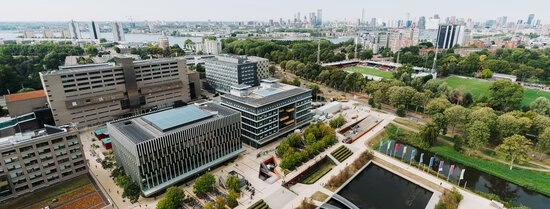Social and ecological crises as well as the growing technological complexity of our life-world call for an ongoing reflection on who we are as human beings. We are challenged to redefine our relationship with nature, each other, and ourselves, and reconsider the legacy of social liberation and emancipation articulated by Enlightenment humanism.
The concept of the autonomous subject is usually presupposed in discourses of liberating or empowering individuals, holding people responsible for their deeds or producing objective knowledge of the world. However, ‘subjectivity’ is also an intensely contested concept, because of its anthropocentrism, its lack of attention to our physical embedding in the world, and its blindness to the interwovenness of the self and others. In this research programme we focus on problems of subjectivity in areas such as climate change and the Anthropocene, artificial intelligence, media and design, feminism, anticolonialism, and on concepts such as post-truth, consciousness, agency, responsibility, power, and citizenship. We aim for a theoretical analysis and renegotiation of the relation between institutional domains and individual self-understanding, that enables us to overcome the sense of impotence and corresponding lack of care, attention, and trust.
Research foci:
- Ecophilosophy
- The Future of Techno-Science
- Reinventing Political Subjectivity
- Aesthetics and Decolonization
- Normative Dimensions of Self, Body, and Health
Methodologically we aim at:
Critical diagnoses of societal challenges: We seek viable responses to self-perpetuating struggles for recognition. We reconsider what it means to connect what we know with what we do. We explore how to increase individual and social resilience through resisting disaffected and catastrophist modes of reasoning. And we critically ask how technology-driven transitions attribute responsibility in automated decision-making. Finally, we scrutinize the ethics and economics of the increasing pressure to optimize oneself and enhance one’s performance.
Alternative modes of imagination: There is an urgent need for philosophers, together with other scientists, to reach out to the public at large to find new ways of dealing with transdisciplinary problems such as climate change, threats to democracy, neuro-identity, and superdiverse urban environments. We see performative practices between art and philosophy, or theatre and science, as intrinsic to such outreach and connection.
Our excellent reputation is based on the combination of a critical perspective rooted in continental philosophy (philosophical anthropology, pragmatism, critical theory, phenomenology, poststructuralism) and transdisciplinary collaborations in science, society, art, and politics. This signature approach is reflected by a two-tiered publication strategy that does not only aim at the usual academic outlets but also at publications that reach a wider public of professionals, artists, and policymakers.
Projects
Articulations of Desire: Populism and the Future of Democracy
Out of Breath: Towards a politics of breathability
NeuroTech (Novel Patient-Based Molecular and Cellular FTD Models for Innovative Treatment)
Poppin’ pills is all we know
Institutes
Erasmus Institute for Public Knowledge
Past Events
Staff
- Katharina Bauer
- Christoph Brunner
- Yuk Hui
- Julien Kloeg
- Frans-Willem Korsten
- Gijs van Oenen
- Sjoerd van Tuinen
- Maren Wehrle
- Ruud Welten
- Richard Steenvoorde
- Ryan Kopaitich
- Jamie van der Klaauw
PhD/Postdoc
- Sophie van Balen
- Mala Dengkeng
- Aikaterini Gedidogan
- Thijs Heijmeskamp
- Aldo Houterman
- Sonia de Jager
- Johan Bernard May
- David van Putten
- Joost De Raeymaecker
- Rolf Viervant
- Josephine Zwaan
- Milan Stuermer
- Mario García Pascual
Fellows
- Katharina D. Martin
News & Upcoming Events
No event items found.
